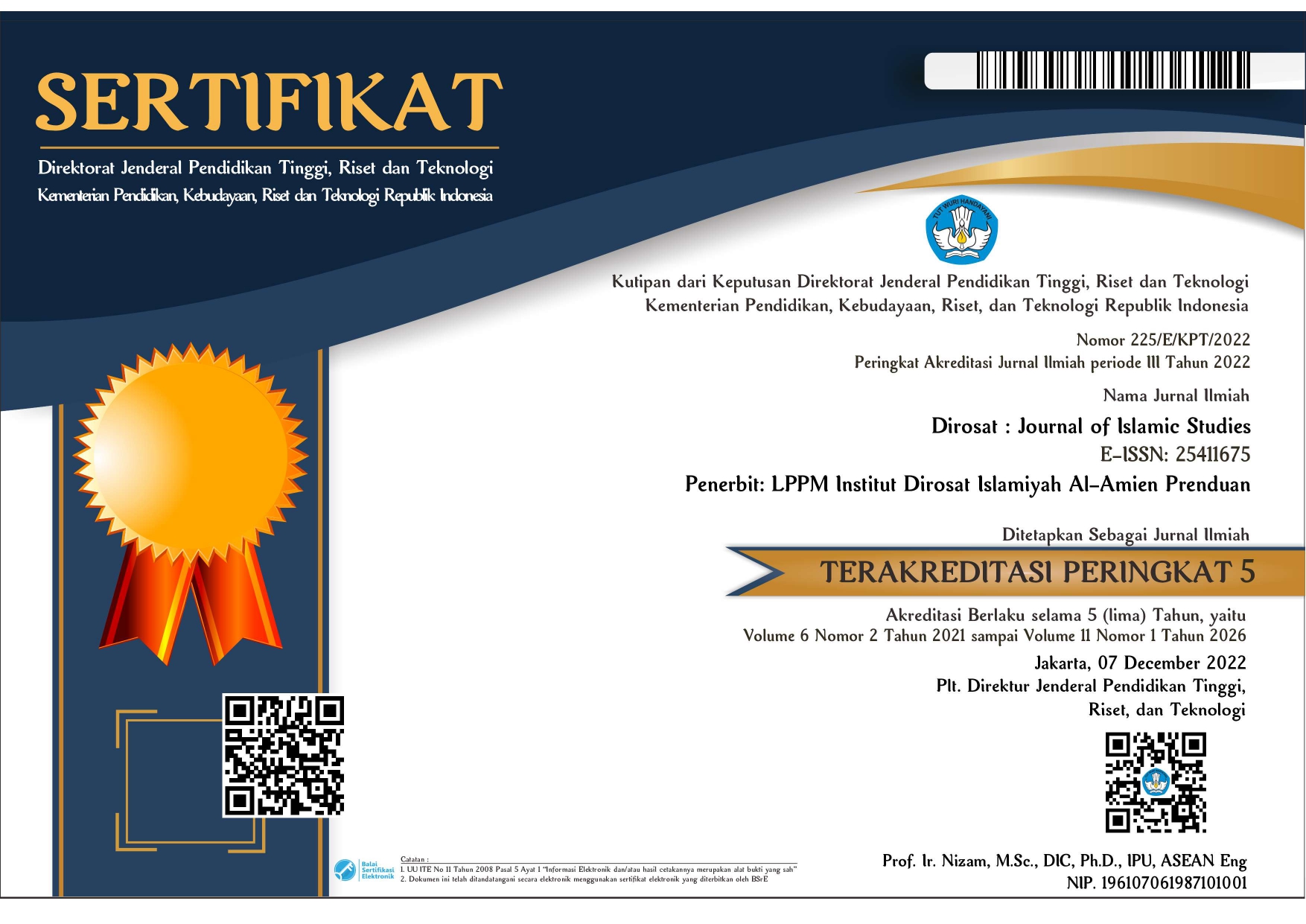Implementasi Model Pembelajaran Humanizing The Classroom Dalam Meningkatkan Motivasi Belajar Siswa Tahun 2016/2017
Abstract
 Learning that uses Humanizing The Classroom is an educational model that is oriented and views humans as God's creatures with all their nature. So that it allows humans to be able to carry out, maintain, and develop their lives. Later, in this learning process each individual can develop a sense of mutual respect for human rights such as the right to broadcast the truth and the right to learn according to their abilities. The main focus of this research is to determine the application of the Humanizing the Classroom learning model in increasing student motivation, the effectiveness of the application of the Humanizing the Classroom learning model and the inhibiting and driving factors in the application of the Humanizing the Classroom learning model. The approach used by researchers in this study is a qualitative approach. The data from this study are the results of interviews with all MA Nurul Huda Pakandangan teachers, Bluto District, Sumenep Regency, which the researchers considered to be able to provide an accurate and correct description. Data collection procedures used in qualitative research are interviews, observation and documentation. Based on the results of the research that has been done, it shows that the role of the teacher in an effort to improve children's basic writing skills with the Humanizing the Classroom learning model makes the teacher closer to students so as to provide a comfortable atmosphere when starting teaching and learning activities in the classroom. The application of Nurulhuda's Humanizing the Classroom learning model has a positive effect on increasing student motivation. It can be seen an increase in the learning motivation of MA Nurul Huda MA students with their enthusiasm in participating in teaching and learning activities in class, students are very interested in honing their abilities by learning everything new and practicing it in their daily lives. Supporting factors in the application of the Humanizing the classroom learning model are exemplary, active and disciplined teachers and parents as the main controller responsible for the process of student learning motivation and the obstacles are the lack of media, insufficient facilities and little time.
Keywords
References
Albertus, Doni Koesoema. “Pendidikan Karakter: Strategi Mendidik Anak Di Zaman Global.†Jakarta: Grasindo, 2010.
Anisah. “POLA ASUH ORANG TUA DAN IMPLIKASINYA TERHADAP PEMBENTUKAN KARAKTER ANAK.†Jurnal Pendidikan Universitas Garut, 2011.
Garliah, Lili, and Kartika Sari Nasution. “Peran Pola Asuh Orang Tua Dalam Mengembangkan Kecerdasan Emosi Anak.†Jurnal PSIKOLOGIA, 2005.
Haluty, Djaelany. “Islam Dan Manajemen Sumber Daya Manusia Yang Berkualitas.†Jurnal Irfani, 2014, 63–74.
Kemas Badarudin. Filsafat Pendidikan Islam. Yogyakarta: Pustaka Pelajar, 2009.
Lexy J. Moleong. Metodologi Penelitian Kualitatif. Bandung: Remaja Rosdakarya, 2005.
Muhammad Anis. Tafsir Ayat-Ayat Pendidikan. Yogyakarta: Mentari Pustaka, 2012.
Mulyono. Manajemen Administrasi Dan Organisasi Pendidikan. Yogyakarta: Ar-Ruzz Media, 2008.
Noeng Muhadjir. Ilmu Pendidikan Re-Interpretif Phenomenologik. VI. Yogyakarta: Rake Sarasin, 2013.
Rakhmawati, Istina. “Peran Keluarga Dalam Pengasuhan Anak.†Jurnalbimbingan Konseling Isla, 2015.
Siregar, Nina Siti Salmaniah. “Persepsi Orang Tua Terhadap Pentingnya Pendidikan Bagi Anak.†Jurnal Ilmu Pemerintahan Dan Sosial Politik, 2013.
Sugiono. Metodologi Penelitian Pendidikan Kuantitatif-Kualitatif Dan R&D. Bandung: Alfabeta, 2010.
Suharsimi Arikunto. Prosedur Penelitian Suatu Pendekatan Praktek. III. Jakarta: Rineka Cipta, 2000.
DOI: 10.28944/dirosat.v1i2.958
Refbacks
- There are currently no refbacks.

This work is licensed under a Creative Commons Attribution-NonCommercial-ShareAlike 4.0 International License.








